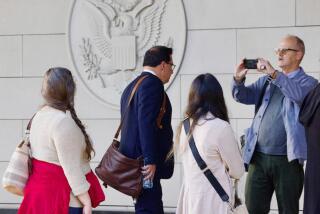The Traditions of Christmas: Yours, Mine and Ours
My younger brother, Roberto, has devised a way to fuse two very different Christmas traditions: the one we grew up with at home, and the one everybody else seemed to be celebrating.
Santa Claus never stopped at the Gurza household on Altadena Lane in San Jose. A sleigh pulled by reindeer never landed on our roof. But believe me, we never felt deprived. We felt special.
The one who brought gifts to our house was El Nino Dios, the Baby Jesus himself. And his arrival was an event that sent the whole household into a delightful uproar in the middle of the night.
A jubilant announcement from our parents always woke us from our sleep shortly after midnight on Christmas Eve. It was always uttered as an excited whisper as they roused us.
“Ya llego El Nino Dios! Ya llego El Nino Dios!”
“The Baby Jesus has arrived! The Baby Jesus has arrived!”
We rubbed our eyes and bolted from bed when it dawned on us that this was the moment we had anticipated for weeks. In our one-piece pajamas with those attached feet, we shuffled into the living room, still adjusting to the bright light.
There, in neat piles for each of the eight children, were the gifts we had asked for. None of the toys were wrapped. That was part of the magic, as if they had just appeared. Later, we wondered how the Christ child managed to get items from Sears, Roebuck and Co.
We’re all grown now, most of us with children of our own. We still cherish the childhood memories of our holiday rituals. But I didn’t realize until now how much we all miss the customs our parents brought from Mexico, where many families still celebrate Christmas as we did. Preserving Old World ways here has been a quest for immigrants from all over the world.
In talking to my scattered siblings by phone over the weekend, I learned how some have incorporated old traditions into their new, bicultural families. Or at least, how they tell their children about them.
Roberto lives near San Francisco with his wife, Kelly Shannon, and their only son, Joaquin, who’s almost 3. For their boy’s first conscious Christmas, they came up with a cultural compromise to explain who brings the toys.
“Santa is the chauffeur,” said Roberto, a clinical psychologist, sounding pleased with the new story. “He drives the sleigh and Nino Dios sits in the back.”
Author Meg Cox might say my brother’s just being creative with assimilation. And that’s good, says her 1998 book, “The Heart of a Family: Searching America for New Traditions that Fulfill Us.”
Writes Cox: “As Americans loosen their ties to organized religion, ethnic heritage, and even the commitments of marriage, what will bind families together? . . . Rituals will, at least rituals that have meaning and depth. . . . The power of ritual to comfort and heal and teach is enormous; and all parents have this power; they just need to know how it works.”
When we were growing up, we never made tamales, but we never had chestnuts roasting on an open fire, either. Other kids seemed shocked that we didn’t have Santa come on Christmas Day. Yet, my sister, Guadalupe, the fourth after me, remembers thinking: “We don’t do it that way. We do it the best way and the right way. And we do it first.”
But not anymore. Piti, as we call her, moved to Fresno, married Jim Witherow, an attorney, and had two children. She quickly discarded the Gurza custom of waking kids at an ungodly hour to play with toys until the wee hours.
That’s not logical or convenient, concluded Piti, who teaches high school Spanish. “And it seemed to be just as fun to watch them running out in the morning.”
Santa comes to the Witherow household, not the Baby Jesus. Santa also stops at the home of another sibling, Patricia, who still lives in San Jose with her husband, Phil Dully, and their three children.
Both sisters feel a loss.
“Nino Dios is a difficult concept when your husband is not from the tradition,” says Patty, a personnel manager. “That is something that has tugged at my heartstrings, because I’m not doing it with my children. It’s just memories for me and something I can’t pass on to them.”
Somehow, our eldest brother, Edward, managed to keep the Gurza Christmas intact for his three children, now college age. Although he moved the furthest away, his Illinois household still was visited at midnight by Nino Dios. Cultural variety came at dinner. He and his wife of 30 years, Liz Curtin, served a Midwestern meal of rib roast, Yorkshire pudding and a Yule log for dessert.
“It’s a big amalgam,” says Ed, who teaches medicine at Loyola University Chicago. “Sometimes, I can’t tell which traditions are hers and which are mine. They’ve become ours.”
*
Agustin Gurza’s column appears Tuesday and Saturday. Readers can reach Gurza at (714) 966-7712 or [email protected]
More to Read
Sign up for Essential California
The most important California stories and recommendations in your inbox every morning.
You may occasionally receive promotional content from the Los Angeles Times.










